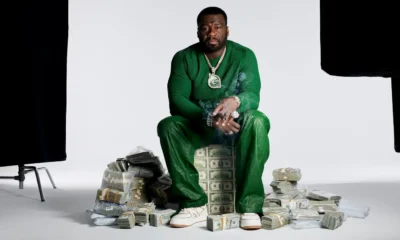Entertainment
Baby oil, “freak offs,” and shocking celebrity testimonies — inside Diddy’s explosive sex-crimes trial that shook the music industry
As Sean “Diddy” Combs awaits sentencing after a split federal verdict, disturbing details — from “freak offs” to alleged abuse of Cassie Ventura — have surfaced, exposing one of the most scandalous trials in entertainment history.
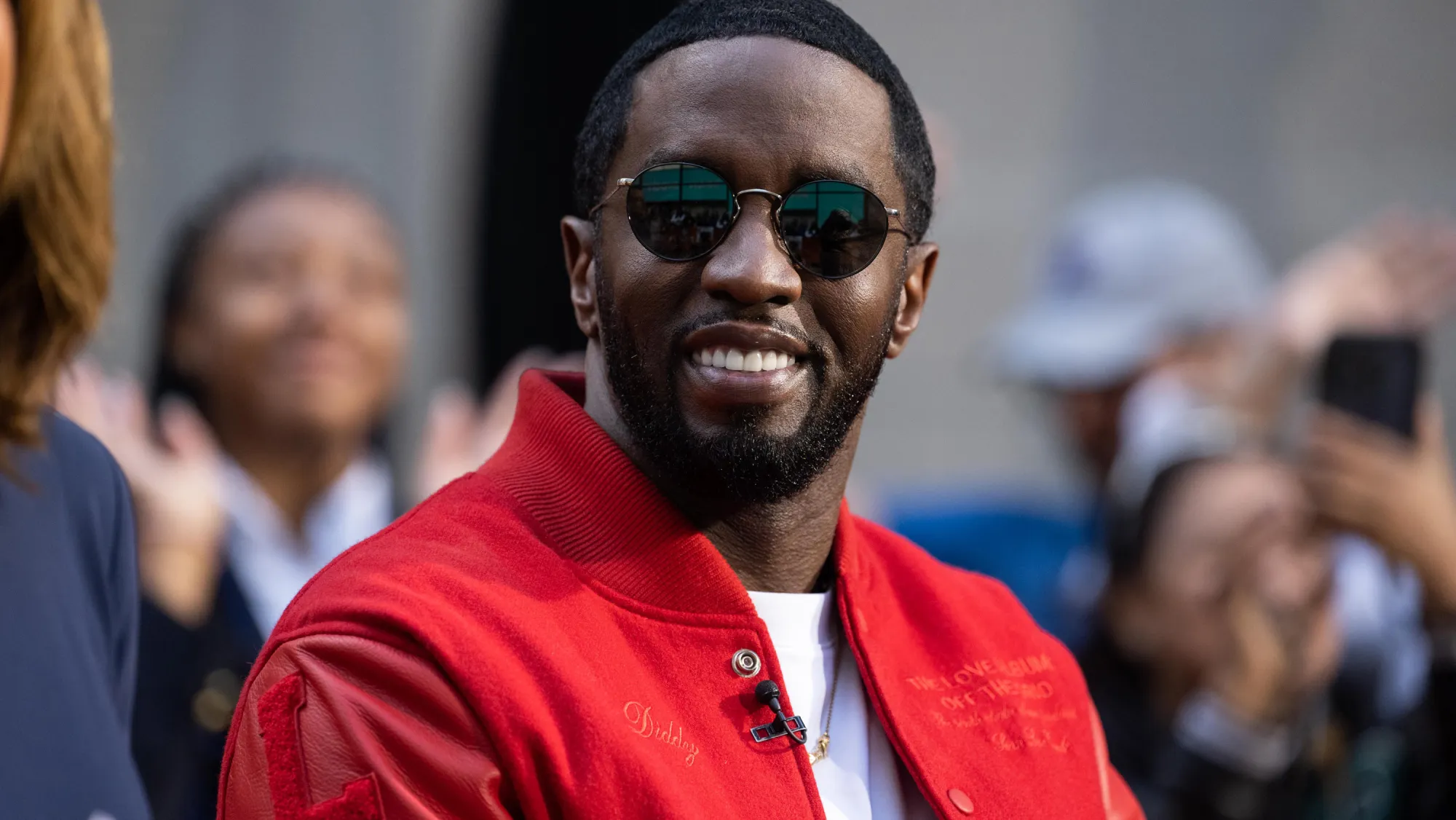
Three months after a Manhattan jury delivered a mixed verdict in Sean “Diddy” Combs’ explosive federal sex-crimes trial, the world is bracing for what comes next. The 55-year-old music mogul — once hailed as hip-hop’s ultimate success story — will learn his fate on Friday, October 3, as a federal judge decides how long he’ll remain behind bars for his conviction on two counts of transportation to engage in prostitution.
ALSO READ : Survivor Season 49 episode 2 shocker Kele tribe loses again and fans stunned by who went home
The case has already sent shockwaves through the entertainment world, with allegations of sex trafficking, drug-fueled parties, physical abuse, and psychological manipulation. Over seven weeks of testimony earlier this year, prosecutors painted a chilling picture of Combs’ secret life — one filled with power, control, and disturbing sexual rituals that witnesses say blurred the line between pleasure and coercion.
“He ran his world like an empire of fear,” a former assistant testified. “Everyone knew not to question him — or you’d be gone the next day.”
A verdict that divided the nation
The jury’s July verdict acquitted Combs of the most severe charges — racketeering and sex trafficking — but found him guilty on two counts related to interstate prostitution. The split decision left many wondering whether justice had been fully served.
Prosecutors argued that Combs operated a “criminal enterprise” built on exploitation, using his fame and wealth to lure women into what one witness described as “a dangerous fantasy world.”
Defense lawyers countered that the government’s case relied heavily on inconsistent testimonies and “salacious exaggerations,” insisting Combs was the target of a “public shaming campaign.”
Still, Judge Lewis A. Kaplan made clear during the trial’s closing arguments that “the testimony presented raises deeply troubling questions about abuse of power, consent, and celebrity privilege.”

“Freak offs,” baby oil, and a house of secrets
Among the most disturbing revelations were the so-called “freak offs” — secretive sexual gatherings allegedly organized by Combs in luxury hotels across Los Angeles, Miami, and New York.
According to multiple witnesses — including former sex workers, hotel staff, and ex-girlfriends — Combs allegedly demanded that participants use baby oil during explicit acts, some of which were filmed without consent.
“He’d line up women, make them perform, and record everything,” said one former employee during cross-examination. “There was always baby oil, cameras, and drugs — it was like a ritual.”
Prosecutors claimed these encounters often involved coercion and threats, with several women describing physical and emotional abuse behind closed doors.
Cassie Ventura’s emotional testimony
Perhaps the most powerful moment of the trial came from singer Cassie Ventura, Combs’ former girlfriend and longtime muse.
Ventura — who previously filed a civil lawsuit against Combs that was settled privately — took the stand to recount years of alleged abuse, manipulation, and control. Her testimony was raw and emotional, bringing the courtroom to silence.
“He would isolate me, humiliate me, and tell me I owed him my life,” Ventura said tearfully. “It wasn’t love — it was ownership.”
Her words resonated far beyond the courtroom, reigniting debates about abuse and accountability within the entertainment industry.
Kid Cudi’s shocking allegation
Adding another celebrity twist to the trial, rapper Kid Cudi testified about a frightening incident during his brief relationship with Ventura.
Cudi alleged that Combs once broke into his home, furious over their rumored connection. “He was obsessed with control,” Cudi told jurors. “It didn’t matter who got hurt as long as he felt powerful.”

2022 Billboard Music Awards – Arrivals American rapper Diddy Sean Combs arrives at the 2022 Billboard Music Awards held at the MGM Grand Garden Arena on May 15, 2022 in Las Vegas, Nevada, United States. MGM Grand Garden Arena, Las Vegas, Nevada Nevada United States PUBLICATIONxNOTxINxFRA Copyright: xImagexPressxAgencyx originalFilename: collin-2022bill220516_np3ZV.jpg
The rapper also claimed that his car mysteriously exploded in his driveway weeks later — a story that quickly went viral on X (formerly Twitter), though Combs’ defense team denied any connection to the event.
The witnesses and the fallout
Over 30 witnesses, from ex-employees to federal agents, took the stand, detailing a network of enablers and cover-ups surrounding Combs’ lavish lifestyle. Prosecutors described an empire “run like a private kingdom,” where loyalty was purchased, silence was enforced, and dissent was punished.
Several witnesses claimed they were paid off or threatened to remain quiet about what they saw. One former house manager said he was ordered to destroy security tapes that captured disturbing footage.
“He thought he was untouchable,” the witness said. “He used his fame to make people forget what he really was doing.”
What’s next for Diddy
While Combs was cleared of the most severe charges, his upcoming sentencing hearing could still see him face several years in prison. Legal experts say the judge may consider the “pattern of misconduct” presented at trial when determining the length of his sentence.
His legal team maintains that they plan to appeal, arguing that “public perception was unfairly shaped by media sensationalism rather than evidence.”
Outside the courthouse, supporters and critics of the once-beloved producer have been vocal. Some fans continue to defend his legacy as a pioneer of Bad Boy Records, while others see the trial as a necessary reckoning for decades of alleged abuse and unchecked celebrity power.
Whatever the verdict, one thing is certain: the Diddy trial has marked a turning point in how the world views power, fame, and accountability.
For many, the story of Sean “Diddy” Combs is no longer about the mogul who built an empire — but about the man whose secrets may have finally brought it down.
Entertainment
Olivia Rodrigo Leaves Her Idol ‘Mind Blown’ With Stunning A Cappella Christmas Cover
Teaming up with Jacob Collier, Olivia Rodrigo delivers a pitch-perfect ‘I’ll Be Home for Christmas’ that earns praise from Sheryl Crow

Olivia Rodrigo just delivered an early holiday gift that instantly melted the internet — and left one of her biggest idols completely stunned.
On Monday, December 8, acclaimed musician Jacob Collier shared a video featuring himself and the Gen Z pop superstar performing an a cappella cover of “I’ll Be Home for Christmas.” The stripped-down rendition, rich with layered harmonies and emotional warmth, quickly became a fan favorite — and even earned a jaw-dropping reaction from Sheryl Crow.
“Ok MIND BLOWN,” Crow wrote in the comments, summing up what thousands of listeners were thinking.

A Simple Start, A Breathtaking Finish
The video begins casually, with Olivia Rodrigo flashing a heart with her hands and asking, “Hi, Jacob! How’s this?” What follows is anything but casual.
Rodrigo launches into a soft, crystal-clear vocal take on the classic holiday song — originally made famous by Bing Crosby in the 1940s. One by one, Jacob Collier layers in intricate backing harmonies, creating a rich, almost orchestral soundscape without a single instrument.
“I’ll be home for Christmas / You can plan on me,” the pair sing in perfect sync. “Please have snow and mistletoe / And presents under the tree.”
Sharing the clip, Collier wrote, “I’ll Be Home For Christmas with my dear friend @oliviarodrigo 🎄,” keeping the caption as understated as the performance was powerful.
A Classic Song, A Modern Revival
Though “I’ll Be Home for Christmas” dates back more than 80 years, the song has enjoyed a resurgence in recent years, even peaking at No. 50 on the Billboard Hot 100 in 2021. Rodrigo and Collier’s version feels both timeless and modern — respectful of the original while infused with their distinct musical identities.
Fans praised Rodrigo’s control and emotional restraint, while Collier’s signature harmonic genius elevated the performance into something almost sacred.
Sheryl Crow’s Full-Circle Moment
The most notable reaction came from Sheryl Crow, a longtime inspiration for Rodrigo. The admiration between the two artists has been mutual and well-documented.
The pair first crossed paths at Billboard’s Women in Music Awards in 2022, where Crow presented Rodrigo with Woman of the Year. During her acceptance speech, Rodrigo gushed,
“Sheryl, I am such a massive fan of you and your songwriting… It really means the world.”

In 2023, Rodrigo returned the favor by helping induct Crow into the Rock & Roll Hall of Fame. Reflecting on that moment, Rodrigo told Billboard,
“It was an honor to join Sheryl on stage. She’s equally as kind as she is talented.”
Crow, for her part, has been equally generous with praise. Speaking on The Tonight Show, she called Rodrigo “the real deal,” adding,
“She’s a great songwriter. She seems kinda unaffected by all of it.”
A Holiday Moment Fans Won’t Forget
For Rodrigo, who first rose to fame on High School Musical: The Musical: The Series before becoming one of pop’s most defining voices, the performance marks another reminder of her versatility — not just as a hitmaker, but as a vocalist deeply rooted in melody and storytelling.
For fans, the collaboration is more than just a Christmas cover. It’s a meeting of generations, talent, and influence — and a reminder that sometimes, the most powerful performances need nothing more than voices and heart.
Entertainment
Justin Bieber Revisits the Bowling Alley From His ‘Baby’ Era 15 Years Later — A Full-Circle Moment Fans Didn’t Expect
The pop star returns to the iconic filming location of his breakout hit ‘Baby,’ reliving memories from the start of his global superstardom

Justin Bieber recently took fans on a nostalgic journey back to where it all began. On Thursday, December 11, the global pop icon shared an Instagram Reel revealing that he revisited the bowling alley where he filmed the music video for his career-defining hit “Baby” — a full 15 years after the song changed his life forever.
“Went to where I shot my music video for baby. This is what happened,” Bieber captioned the post, instantly sending longtime fans into an emotional spiral. The Reel shows Bieber casually walking through the bowling alley, singing Baby a cappella while friends beatbox beside him — recreating the magic that once introduced him to the world as a teenage sensation.
A Casual Look, A Powerful Memory
Now 31, Bieber appeared relaxed and reflective in the video, wearing an oversized gray T-shirt, baggy embellished shorts, a silver chain, and a beanie. The vibe was far from the polished pop-star image of his early years — instead, it felt intimate, spontaneous, and deeply personal.

Friends and collaborators including Eddie Benjamin, Oranj Goodman, Gabriel Jacoby, and Kyle Massey accompanied him. In one moment that delighted fans, a friend even stepped in to perform Ludacris’ famous verse: “When I was 13, I had my first love…”
‘Baby’: The Song That Changed Everything
Released in 2010, “Baby” was the lead single from Justin Bieber’s debut studio album My World 2.0. The track quickly became a global phenomenon, peaking at No. 1 on the U.S. Billboard 200 and turning Bieber into one of the most recognizable faces in pop culture.
The music video was filmed at Universal CityWalk and Lucky Strike Lanes in Los Angeles, locations that became instantly iconic for an entire generation of fans who grew up watching Bieber’s rise.
Inspired by Michael Jackson
Back in 2010, Ludacris compared the Baby video to a modern-day version of Michael Jackson’s “The Way You Make Me Feel” during an interview with MTV News — a comparison that underscored how massive Bieber’s breakout moment truly was.
At the time, Bieber explained that the song and video centered around teenage heartbreak and persistence.
“It starts off, I really like this girl, but we didn’t get along,” Bieber said then. “I want her back, and I’m chasing her around. She’s playing hard to get, but I’m persistent.”
Ludacris Knew It Was a Hit
Ludacris, now 48, recalled having to creatively frame his verse to fit a teen love story.
“I knew it was a hit as soon as I heard it,” he said. “I just had to figure out how I could get on a record with a 15-year-old.”
He famously added, “Mark my word, that’s going to be one of the biggest songs of 2010.”
History proved him right.
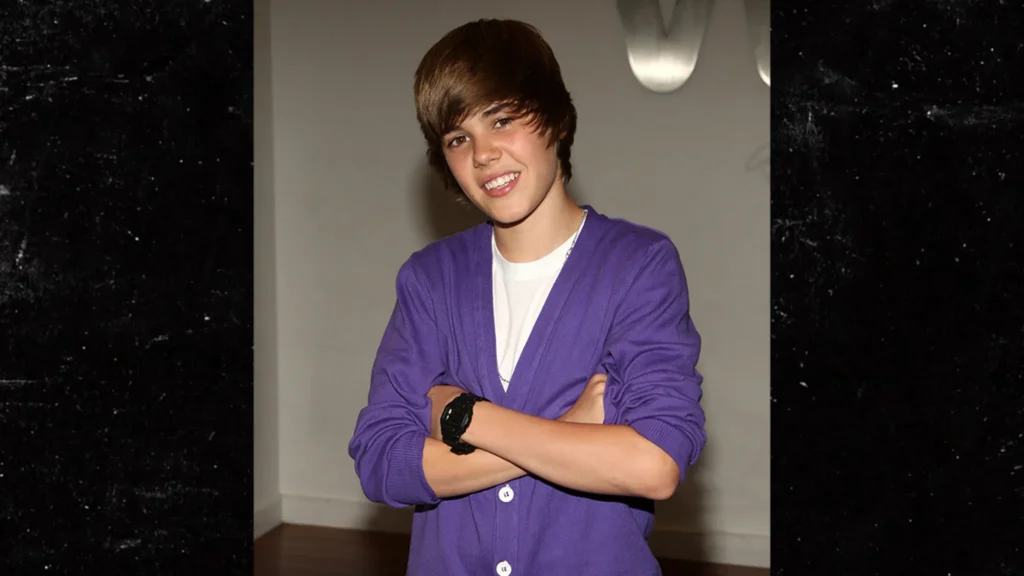
Jasmine Villegas Looks Back
Jasmine Villegas, who played Bieber’s love interest in the Baby music video, later reflected on the experience in a PEOPLE interview.
“I was around 16 or 17,” she said. “I knew he was on YouTube, but I didn’t realize what it would become. I didn’t put two and two together at first.”
From Teen Idol to Global Icon
Bieber’s quiet return to the bowling alley wasn’t just about revisiting a set — it symbolized how far he’s come. From a YouTube discovery to a chart-topping artist who has navigated fame, controversy, marriage, health struggles, and reinvention, Justin Bieber’s journey has been anything but ordinary.
Fifteen years later, Baby still echoes — not just as a song, but as the starting line of one of pop music’s most defining careers.
Entertainment
Euphoria Season 3 First Photos Drop After Four-Year Wait — Zendaya, Sydney Sweeney and Jacob Elordi Return Older and Darker
HBO unveils new Season 3 images as Euphoria jumps five years ahead, revealing adult lives, broken ties, and shocking futures

After nearly four years of silence, HBO’s Euphoria is finally back in focus. On Friday, the network released the first official photos from Euphoria Season 3, giving fans their first glimpse at where the beloved — and deeply troubled — characters have landed after a dramatic five-year time jump.
The images confirm what creator Sam Levinson has been hinting at for months: Euphoria is no longer a high school story. The former teens are now adults, navigating careers, relationships, addiction, ambition, and consequences that didn’t fit inside lockers and classrooms.
Zendaya’s Rue Enters a New, Dangerous Phase
At the center of the series remains Zendaya, returning as Rue Bennett. In the newly released photos, Rue appears isolated and solemn — sitting alone in a church in one image, and riding in a truck in another.
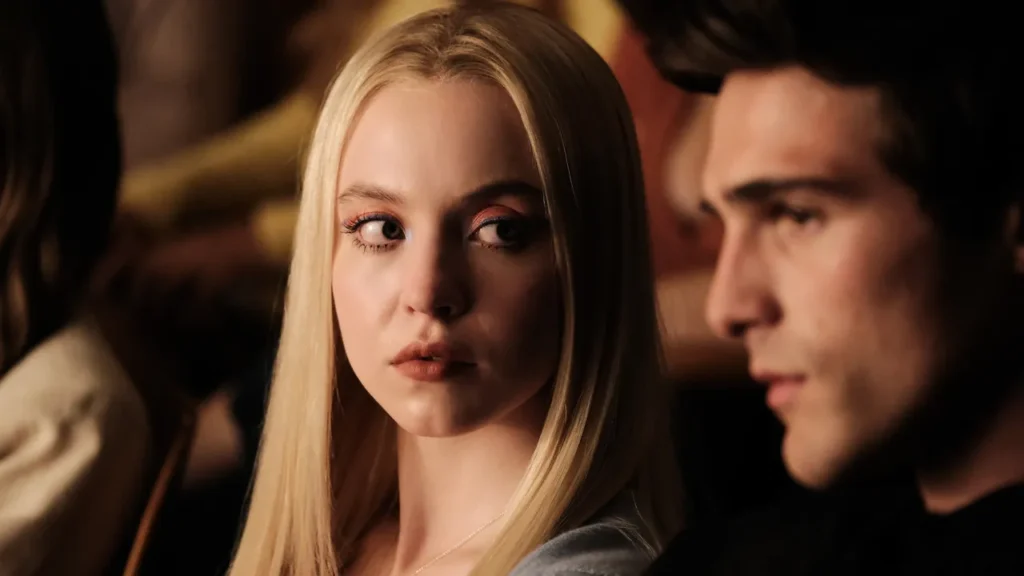
Across the first two seasons, Rue’s struggle with substance abuse — fueled by grief over her father’s death — defined the emotional core of Euphoria. Season 3 takes that struggle even further.
According to Sam Levinson, Rue is now “south of the border in Mexico,” deeply in debt to drug dealer Laurie, played by Martha Kelly. The new season will follow Rue as she searches for “very innovative ways” to survive and pay off what she owes — a storyline that suggests the show is entering its darkest territory yet.
Nate and Cassie’s Shocking Future
One of the biggest reveals from Levinson confirms a jaw-dropping arc: Nate Jacobs (Jacob Elordi) and Cassie Howard (Sydney Sweeney) are now living together in the suburbs — and they’re engaged.
In the Season 3 photos, Nate is seen in a suburban kitchen making hamburgers, a quiet image that contrasts sharply with his violent and manipulative past. Cassie, meanwhile, stands outside a house as an ice cream cone melts in her hand — a visual metaphor for her unraveling emotional state.
Levinson revealed that Cassie is now addicted to social media and obsessed with the illusion of success surrounding her former classmates. He also confirmed that Nate and Cassie will get married before the end of the season, a development that is already dividing fans online.
Jules, Maddy and Lexi Find New Worlds
Jules Vaughn, played by Hunter Schafer, is now attending art school. A new image shows her working in an art studio, with Levinson describing her as “nervous” about her future as a painter.
Maddy Perez (Alexa Demie) has moved to Hollywood, working at a talent agency while juggling undisclosed “side hustles.” In one of the most striking photos, Maddy appears fully glam on a film set — a far cry from her high school chaos.
Interestingly, Maddy appears alongside Lexi Howard (Maude Apatow) in multiple images. Lexi is now working as an assistant to a showrunner, played by Sharon Stone, and is seen wearing a “crew” pass on what looks like a large-scale production set, complete with gladiator costumes in the background.
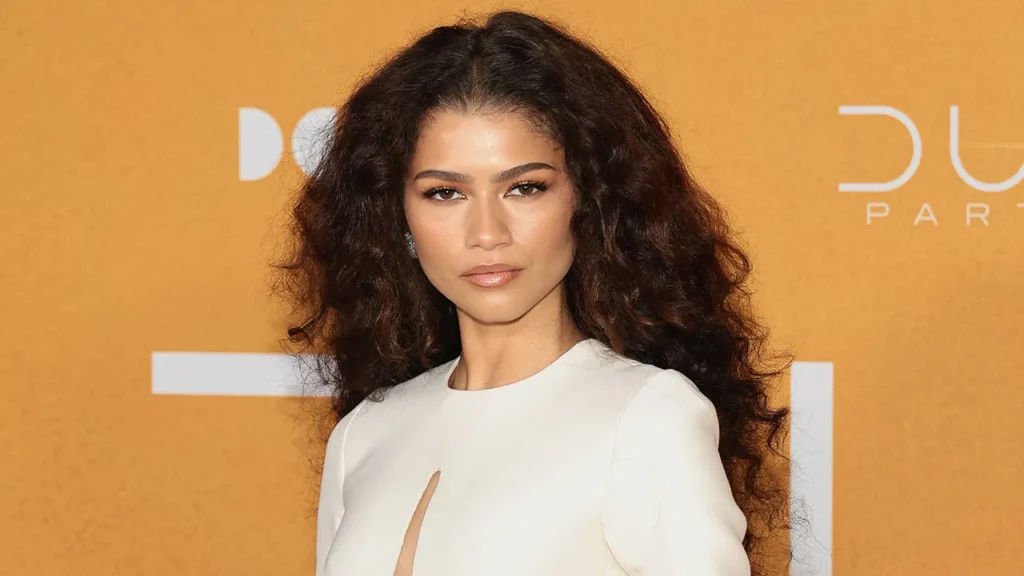
The Losses Still Linger
Season 3 also carries the weight of real-life and fictional loss.
At the end of Season 2, Fezco (Angus Cloud) watched helplessly as his younger brother Ashtray (Javon Walton) was killed during a SWAT raid. Tragically, Angus Cloud himself died of an accidental overdose in 2023, and his absence looms large over the new season.
Not all characters are returning. Barbie Ferreira, who played Kat Hernandez, previously exited the show, citing creative differences and a lack of direction for her character. Storm Reid, who portrayed Rue’s sister Gia, will also not return for Season 3.
A Grown-Up Euphoria
Speaking earlier this month at an HBO presentation, Sam Levinson explained why the five-year leap felt necessary.
“It felt natural,” he said. “It allows the characters to not only leave high school behind, but college as well.”
The new photos hint at adulthood without spoiling key plot points — solitude, ambition, domesticity, and identity all quietly woven into the visuals.
If Seasons 1 and 2 were about chaos in youth, Euphoria Season 3 looks poised to explore something more unsettling: what happens when trauma grows up with you.
-

 US News1 week ago
US News1 week ago“She Never Made It Out…” Albany House Fire Claims Woman’s Life as Family Pleads for Help to Bring Her Home
-

 Entertainment7 days ago
Entertainment7 days agoXG Star Cocona Shares a Brave Truth at 20 — “I Was Born Female, But That Label Never Represented Who I Truly Am…”
-
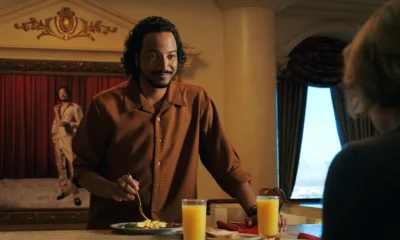
 Entertainment7 days ago
Entertainment7 days agoSamba Schutte Reveals the Surprise Cameo in Pluribus That “Nobody Saw Coming”… and Why John Cena Was Perfect for the Role
-

 Tech1 week ago
Tech1 week agoAfter Losing Over $70 Billion, Mark Zuckerberg Finally Admits His Biggest Bet Is “Not Working” – Meta Plans Massive Cuts to Metaverse Budget
-
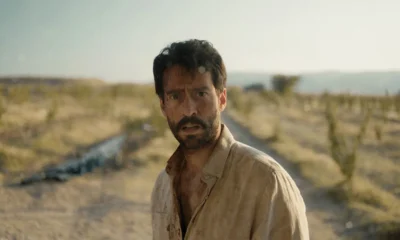
 Entertainment1 week ago
Entertainment1 week agoNika & Madison stuns global audiences as director Eva Thomas reveals why “resilience, not fear, drives Indigenous women on the run”
-

 Entertainment5 days ago
Entertainment5 days agoSaudi Arabia’s entertainment revolution… Red Sea Film Foundation CEO Faisal Baltyuor says he ‘wears many hats’ — but one mission drives them all
-

 Sports6 days ago
Sports6 days agoDodgers Stun MLB With Blockbuster Move, Sign Elite Closer Edwin Díaz to Three-Year, $69 Million Deal
-
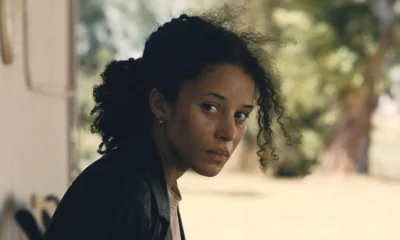
 Entertainment5 days ago
Entertainment5 days agoTeyana Taylor wakes up to a Golden Globe call at 5 a.m.… ‘Am I dreaming right now?’ — and why she’s already begging Paul Thomas Anderson for more


